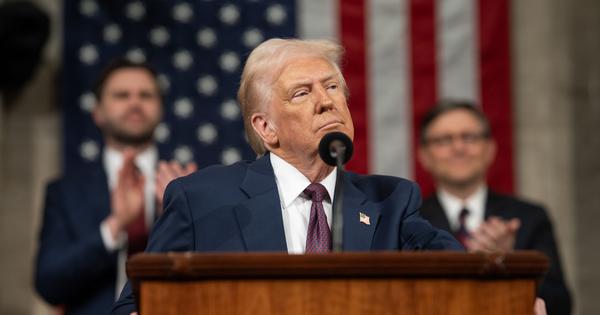Trump calls for immediate cessation of European energy purchases from Russia at UN General Assembly.
United States President Donald Trump addressed the United Nations General Assembly, asserting that India and China are the “primary funders” of Russia’s ongoing war in Ukraine due to their continued purchases of Russian oil. His remarks highlighted a pressing issue as tensions between the U.S. and India have escalated, primarily because of the tariffs Trump imposed on Indian goods and the punitive measures related to oil imports from Russia amidst the Ukraine conflict.
Trump urged European nations to “immediately cease all energy purchases from Russia,” emphasizing that failure to do so would result in wasted efforts in the fight against the war. He remarked, “It is embarrassing to them, and it was very embarrassing to them when I found out about it.” This statement reflects Trump’s concern over the contradiction of European countries buying energy from Russia while simultaneously opposing the war.
In his speech, he elaborated that both China and India are significantly contributing to the financing of the war by their ongoing purchases of Russian oil. He criticized NATO countries for not sufficiently cutting off Russian energy imports, stating, “They’re funding the war against themselves.” This criticism comes amid ongoing discussions about NATO’s collective response to the conflict.
Earlier on the same day, Trump met with Ukrainian President Volodymyr Zelenskyy and expressed confidence in Ukraine’s ability to reclaim its territory with the support of the European Union. He claimed that Russia is facing severe economic challenges, reinforcing his view that a unified front against the invasion is essential.
The backdrop to Trump’s comments includes a meeting between Union Commerce Minister Piyush Goyal and U.S. Trade Representative Jamieson Greer in New York, aimed at accelerating trade negotiations between the two nations. Negotiators from India and the U.S. had already conducted a fifth round of trade talks in Washington during July. However, progress has been hindered following the imposition of a 25% “reciprocal” tariff on Indian goods that took effect in August, along with an additional punitive levy on oil purchases from Russia.
New Delhi expressed disappointment over the U.S. tariffs, which it described as “extremely unfortunate,” pointing out that several countries are taking similar actions in their national interests. Meanwhile, U.S. Secretary of State Marco Rubio expressed hopes that the Trump administration could address the measures imposed on India. He emphasized the importance of European nations imposing sanctions as well, pointing out that they continue to buy significant quantities of oil and gas from Russia, which he deemed “absurd.”
Rubio’s remarks highlighted a growing frustration with the lack of unified action among European countries, particularly as they seek further U.S. sanctions. He noted the critical importance of the U.S.-India relationship, stating that while measures have been taken regarding India, there is hope for resolution.
As discussions continue, the evolving geopolitical landscape remains a focal point for both U.S. and Indian policymakers, particularly in light of the ongoing conflict in Ukraine and its global implications.








